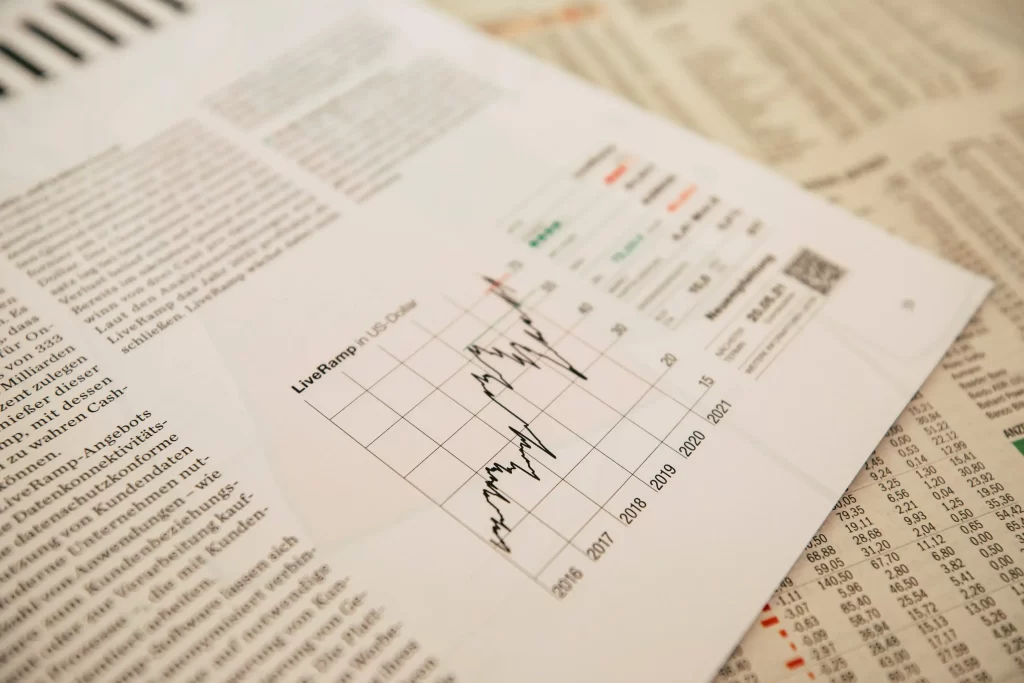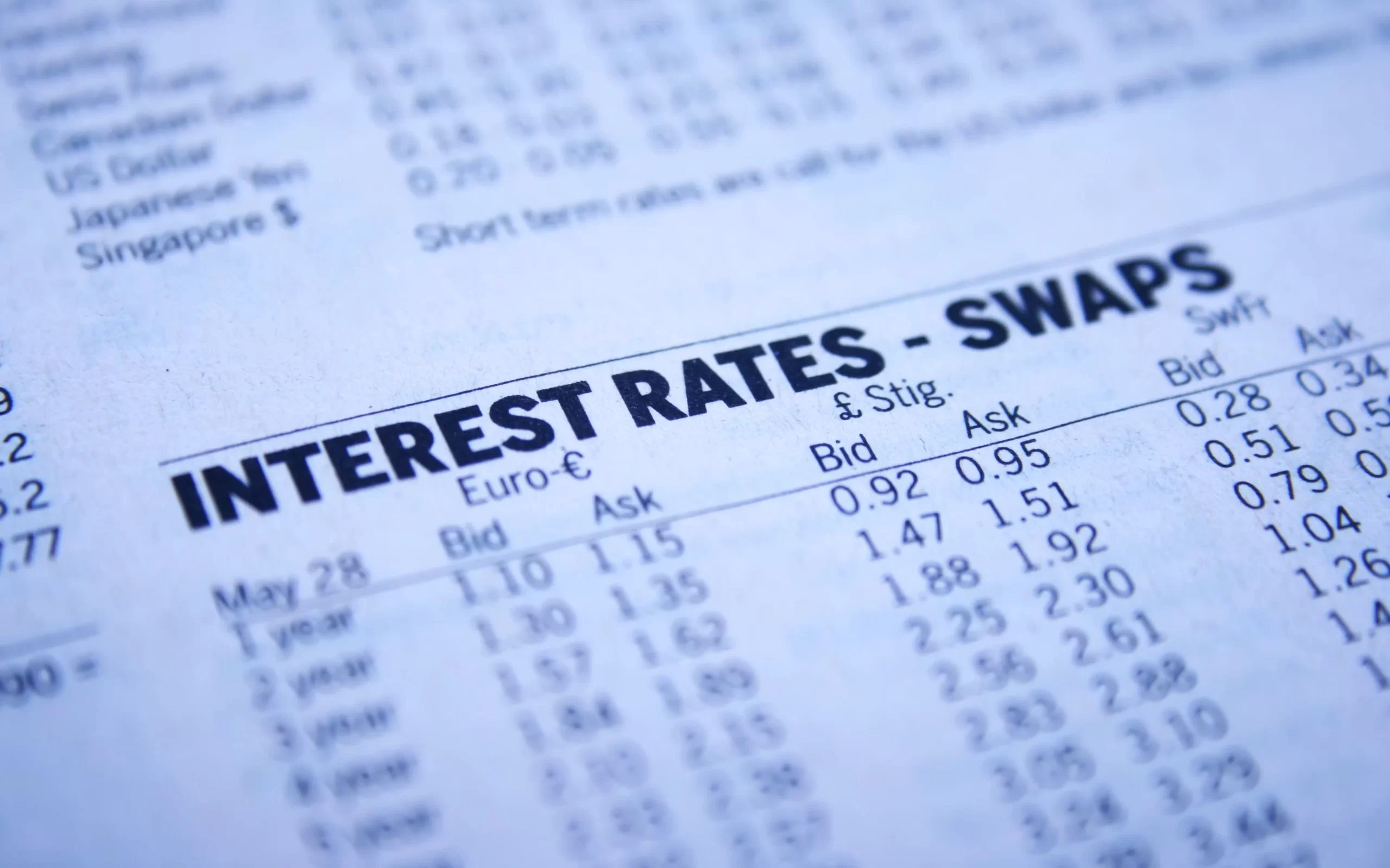interest rate on the stock market are closely linked. The stock market reacts quickly to interest changes. The inverse relationship of the interest rates on the stock market prices means that when the Federal Reserve cuts interest rates, stocks go up, and when they raise them, stock prices go down. However, it’s not always clear how the market will react.
If a company is seen as less profitable due to less revenue or debt expenses, the price of the company’s stock goes down. With lower chances of a company’s stock growth, stock ownership becomes less desirable. However, Banks, brokerages, insurance companies, and mortgage companies are benefitted from interest rate hikes as they can charge more loans. To prevent losses, the traders choose to have diversified portfolios as there is no guaranteed strategy to trade stocks. Traders should keep track of stock market movements to protect themself against heavy losses.
Let’s discuss the relationship between interest rates and the stock market, the effect of interest rates on the stock market, performance, and how it affects stock prices in detail.
The relation between interest rate and stock market
To help investors make better financial decisions, an understanding of the relationship between interest rates and the stock market and its impact on their investment should be apparent. Clarity on the effect of interest rates on the stock market can help investors make better financial decisions. The influence of interest rates on the stock market can be negative and positive.
Stock markets are the platforms where investors can buy or sell a company’s shares. Stock markets are crucial components of a free market economy as it allows access to trading to all kinds of traders. Apart from this, interest rates significantly influence the return on savings and the cost of borrowing, representing a vital component of the total return on investments. The interest rate that affects the stock market is the federal funds rate. The federal funds rate is the interest rate that banks, savings and loans, and credit unions charge each other for overnight loans.
What is the impact of interest rates on the stock market?
The signals from US Federal Reserve that a hike in interest rates can begin as the country’s annual inflation reached 40 year high in December 2021 have resulted in changes in stock markets worldwide. The markets have seen great volatility in recent weeks, as the increase in consumer prices has caused uncertainty among investors. Many are worried about what this could mean for the economy as a whole.
Fed governor Lael Brainard recently said, “Inflation is too high, and working people around the country are concerned about how far their paychecks will go.”
When the economy is performing well, the interest rate is raised, and when the economy is slow-moving, the interest rate falls. The stock market is often quite reactive to interest rate changes, which can happen more quickly than in other areas of the economy. The rise and fall in interest rates take about 6- 12 months to show an impact on the economy. High-interest rates have always impacted a company’s earnings and stock prices in a bad way. However, this situation still acts as an opportunity for traders who keep track of stock market movements.
How do interest rates affect stock prices?

It has been accepted that high-interest rates result in reduced prices of stocks. And it has also been observed that the stock market tends to take off with a fall in interest rates. The relationship between both is inverse but indirect. The following are some effects of interest rates on stock prices and their result on society:
- Investors avoid buying or dumping the stocks they own with a hike in interest rates to minimize losses. Therefore affecting the profitability of publicly traded companies.
- Consumption helps to understand how changes in interest rates affect the stock price in a better way. The rates of interest influence the pattern of consumption of individuals and households. The public has more money to spend on consumer goods with lower interest rates.
- The business’s profitability is increased as low-interest rates stimulate consumption activity. The cost of borrowing for business increases with high-interest rates.
Besides this, the interest rates significantly influence the return on savings and the cost of borrowing, representing a vital component of the total return on investments.
What are the effects of interest rates on the stock market?
The effect of interest rates on the stock market has both aspects. Few sectors are benefitted, whereas its effect weakens a few sectors. With the signals of a hike in interest rates given by the fed in the US, many countries have started seeing its effects. When the interest rates go down, it causes the stock market to go up and vice-versa. This affects the company’s earnings, affecting the stock price as the companies will have less capacity to borrow from banks to boost their business. With high-interest rates, companies with large debt positions, like utility stocks and telecommunication stocks, become unpopular, which results in higher interest repayments. Higher interest rates hamper their ability to borrow more funds.
Even though the rise in interest rates is generally bad for the stock market, few good stock performers still exist. Mortgage companies and insurance companies are benefitted from an increase in interest rates. Higher interest rates tend to positively affect production growth as they will increase industrial production. The energy, industrial, and information technology sectors directly benefitted from the production growth.
What are the interest rates on margin trading?
Before we discuss the interest rates on margin trading, let us understand what margin trading is.
Margin trading is buying and investing in financial securities while borrowing money from a broker to increase potential profits. Utilizing more capital to invest is the main reason behind borrowing money. The purchased stock serves as a guarantee for the loan. Margin trading allows investors to increase the number of shares they can purchase by providing more capital. Margin trading is riskier than other forms of trading. Investors should think carefully and go through all the aspects, then only proceed to buy margin. Traders should also be ready to invest money only when they can afford to pay it back if things go wrong.
The margin amount is the fixed percentage, usually between 3% and 12% of the contract’s notional value. As it is not a loan, there are no interest charges on the future margin for the customer. The margin interest rate is charged depending on the base rate and your margin debit balance.
Stock market vs interest rates performance

Let’s discuss the interest rates vs stock market performance in recent times.
The equity markets had a very good year in 2021, as a rebound in economic activity buoyed investors. This was driven largely by the global vaccination drive, which improved overall health and boosted consumer sentiment worldwide. Additionally, continued policy support on the fiscal and monetary side helped to boost growth across most economies. The Federal Reserve’s zero interest rate policy throughout the year resulted in easy liquidity and some momentum in equity and other asset prices.
Rising rates coincide with positive stock market returns primarily because rate hikes happen when the economy is healthy. The US Fed has marked that it will only hike interest rates when the economy is in good shape. Historically, the equity market has risen an average of 10% in the six months leading up to the first rake hike.
The equity market has a positive outlook but will become more volatile, and returns will be lower. However, there is still strong demand which should support earnings and lead to equity gains. To maximize returns, investors should have an optimum mix of equities, debt, commodities, and non-correlated alternate strategies while continuing to diversify globally.
Conclusion
The change in interest rates has significant consequences on the stock market. The interest rate is a critical factor that impacts the stock market. Depending on whether it’s increased or decreased, investors will react differently, and this movement can cause changes in stock prices. The relationship between these two terms, interest rates, and the stock market are inversely proportional, as when the Federal Reserve cuts the interest rate, the stock market goes up. And when the Federal Reserve raises the interest rates, the stock market goes down. However, there is still no guarantee of how the market will react. Therefore, the effect of interest rates on the stock market should be understood to make ideal financial decisions.
F&Q
In most cases, higher interest rates mean a stock market that declines in value. This is because when interest rates rise, companies will borrow less money. The result is their earnings will grow at a slower rate than investors anticipate. This has a ripple effect across all sectors of the stock market.
“If interest rates move higher, stock investors become more reluctant to bid up stock prices because the value of future earnings will look less attractive versus bonds that pay more competitive yields today,” says Rob Haworth, senior investment strategy director at U.S. Bank Wealth Management.
A Fed rate hike implies higher borrowing costs for companies. In such a scenario, stocks that aren’t profitable get hit the most due to less availability of cash flows. Growth stocks rely on the availability of capital to increase their operations, and higher interest rates essentially mean higher borrowing costs.
